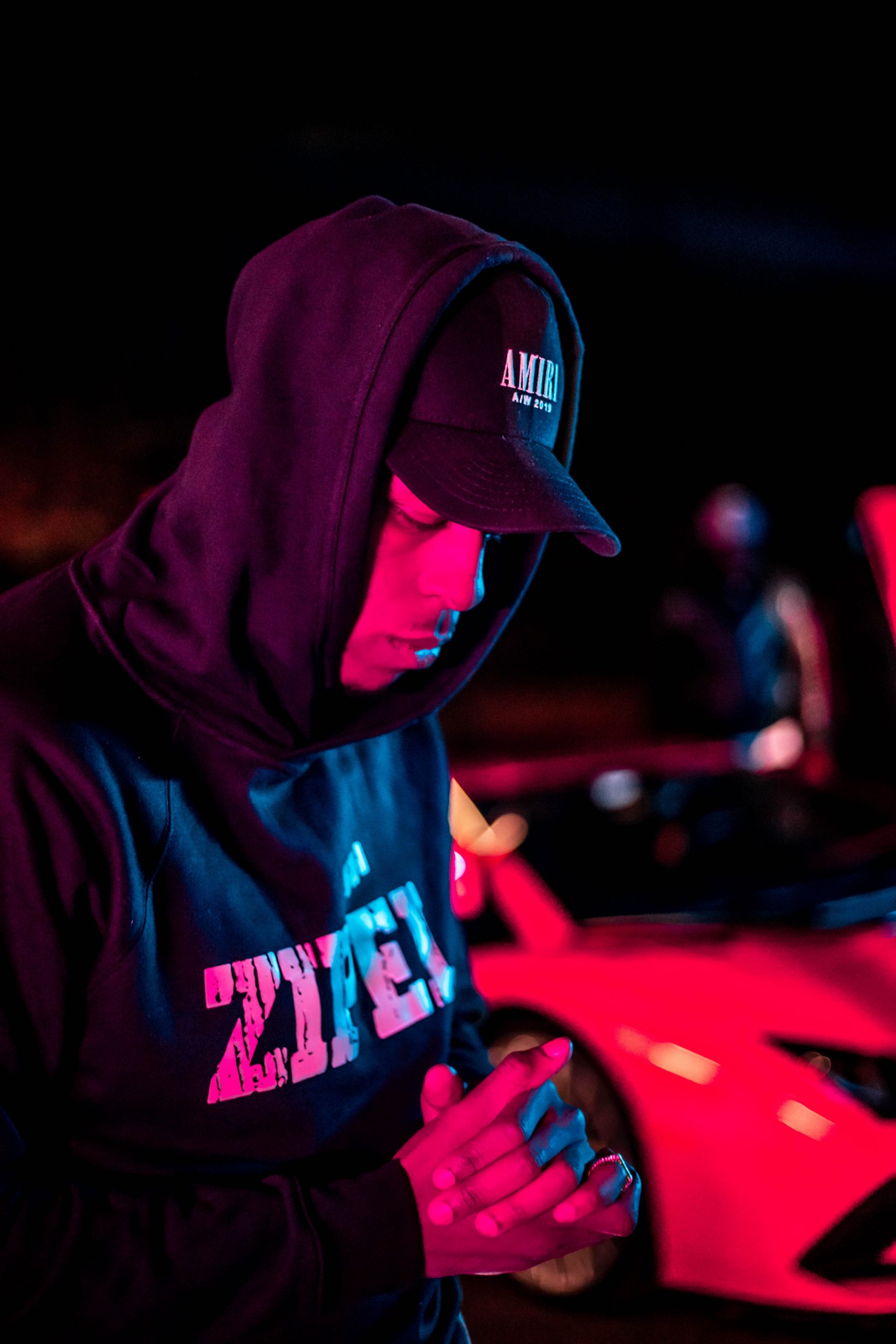Obasi Jackson sat down with Amber Lé of The Feature Presentation to discuss music and mental health. Jackson is a 25-year-old artist with an old soul, a soul that is very rare to come across in this industry. As soon as he hopped on IG Live, we began the conversation. Amid this, Jackson radiated such a bright yet humble light as he spoke. The musician opened up his world for the masses to see.
We first visited his childhood and how he first fell in love with music. A path he’s decided to take seriously for the past 6 years. The Brooklyn-based artist started off in a church. Learning notes, pitches, and percussion remixed with reggae and R&B, Jackson embraces his Panamanian and Jamaican descent as both worlds collide to create awe-inspiring content. Revolving his life around everything music, he continues nourishing his craft as he chose to major in music theory and audio engineering.
From beats to books, Jackson aligns every aspect of his life towards a successful music career, curating Emotion Kid. The album was personal. When asked what the inspiration behind the project was, Jackson broke it down that he needed a release and emphasized on the importance of embracing your youth.
“Emotion Kid was really about all the past traumas and things that I go through and I wanted to talk about them. Usually we kind of build up a lot of things mentally from when we’re kids that we don’t even realize as we get older so… in essence, what I’m trying to say is, me being youthful is kind of a testimonial for who I am and what I come from.”
A notable track off the album is titled “Walk,” On “Walk,” Obasi Jackson speaks about what it’s like to be an African-American male in America, saying, “You should see the way he stares at us/I can tell you that they’re scared of us/It’s funny how we gotta build a trust.” Deeper into the song, the musician explains that taking action is a must. Instead of standing on the sidelines, he suggests African-Americans stand their ground, to use their voices. Ironically, this correlates with previous and current anti-black semantics. When Obasi refers to walk, he’s symbolically speaking on making a difference in the world. In the chorus, he even says, “I think I’m bout to walk/Cause I can’t take a loss.” Before the song ends, Obasi drops some gems for millennials, urging them to take control of their life and to pay attention to what’s around them. He also explains why glorifying drugs and violence is a big no. Obasi raps,” Smoking dope, taking pills with the lean till your minds dust/You need to open up your eye bruh/There’s propaganda to your eyes over time till your mind bust. Don’t you want to be free?” In more recent news, “Walk” speaks on what’s been happening, not only in America but worldwide as countries gather in protest formation and fight for equality led by the Black Lives Matter movement. The death of George Floyd weighed extremely heavy for the black community. In the middle of a pandemic, outrage sparked and it was the final straw. Jackson walked us through what the next steps should be as a society.
“I think it’s time that we educate ourselves. A lot of times we do the protests and we do all the stuff… good ideas but not properly led and it’s because of the miseducation of it and our people. You have to really dive deep and really kind of put the pieces to the puzzle together yourself. Make sense of it for yourself because that’s just how it is right now. Educate yourself and once you feel like you see where we’ve come from, we can try and make a better tomorrow.”
More recently, Obasi dropped a song called “Work.” On “Work” he uses a melodic auto-croon over a harp-led R&B offering. Between lyrics, the musician speaks about his ascending career and the steps he took to get ahead. He also unveils that there was shade thrown his way, yet he still cultivated his light and embarked on becoming successful. As the song continues, Obasi speaks about the injustice of America. He sings, “How the state playing victim/But they’re the ones tryna get me?” Essentially this ties into current events and overall history. For decades, African-Americans have been fighting till the death to be heard and seen. The music video to accompany the track sees memorabilia for his brother, Pop Smoke. From a bird’s-eye view, expect to see Obasi taking a knee to honor Pop Smoke, along with a mass of people to celebrate his life, pictures, and candles. The music video also speaks volumes when it comes to unity and change. Symbolically, “Work” follows this quote by President Woodrow T. Wilson, “We cannot be separated in interest or divided in purpose. We stand together until the end.” The Feature Presentation, in particular, commends Obasi for making a song that’ll leave a positive impact on history. It also doesn’t hurt that “Work” creates a vibe that’s perfect for doing the Woo dance to.
Although the conversation we had was a serious one, he also highlighted that it’s alright to have fun and enjoy life while trying to figure life out. He emphasized to never let the pressure of the world control you by getting in tune with yourself. Don’t let anybody use you and the more you get to know who you are, the less abuse you will allow yourself to go through whether it’s physically, mentally, or emotionally.
As we mentioned “Seasons Change,” Jackson self-reflected for his fans to see as he shared a vulnerable moment with the viewers. Admitting that he’s cried during the making of the track where he was too young to understand what relationships really meant and acknowledging that he was toxic as well. We took a moment to explore how mental health and music go hand in hand for him as an artist. As an artist, it’s difficult to take care of your mind when you’re doing a large number of interviews, shaking hands with a lot of people and networking, in general, is exhausting. While others may take a step back to breathe, Jackson takes a step into the booth and recharges in the studio where he can let his creativity flow.
Obasi Jackson is his own brand but we can’t help but acknowledge he was related to a young king who passed and left a huge impact on the Hip Hop game. Life after Pop Smoke has not been easy as he the balances keeping his emotional state afloat and being there for his family simultaneously.
“It’s been hard, I have my days. Seeing my mother break down sometimes gets at me. You know what I mean? But I gotta stay strong. He had a dream, I had a dream. We were on two different paths but to the same goal. And right now, I’m blessed with the opportunity to do such so coping. I just been staying focused and prayed up and just try to be there for my mother and my family as much as possible. My brother paved the way and right now I’m just the vessel.”
Overall, Obasi Jackson is creating his own legacy and keeping his brothers alive. He’s using his voice to push others towards remaining true to themselves and taking a stand for what’s right. “When we go into our secondary stages in life, we see it’s not a game. Being an adult is no joke so for me, I want to keep that part of myself and never forget that youthful sense.” Obasi adds.
Co-written by Natalee






